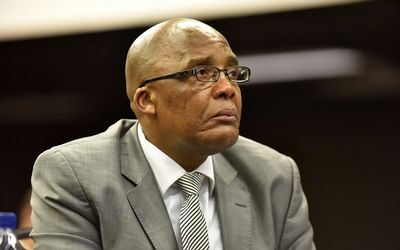BARELY a month into public hearings, the Competition Commission’s Healthcare Market Inquiry has revealed gaping holes in the regulation of private healthcare, raising tough questions about the Department of Health’s capacity to create an enabling environment for business while protecting consumers’ rights.
The inquiry was established to determine why private healthcare price rises consistently exceed inflation, and to assess whether there are barriers to competition and patient access. The issues are being interrogated by a five-member panel led by retired chief justice Sandile Ngcobo.
Set up by the commission in terms of amendments to the Competition Act that allow it to conduct investigations proactively, the panel is hosting public hearings across the country.
During hearings in Cape Town, the panel heard complaints about legislative uncertainty, inefficient statutory bodies and a Department of Health that has stalled key reforms needed to stabilise the medical schemes industry and protect consumers’ interests.
Private hospitals described challenges obtaining operating licences from provincial health departments, while medical scheme members spoke of their difficulties getting the Council for Medical Schemes to expedite their complaints. Medical schemes said they were being hamstrung by the partial implementation of Social Health Insurance (SHI) reforms designed during former president Thabo Mbeki’s tenure.
SHI would have made it mandatory for employed people to join a medical scheme and was to have included measures to equalise risk between medical schemes so they competed on efficiency rather than their ability to attract low-risk clients, while state hospitals and clinics would have continued to provide free care to the poor and unemployed.
These reforms fell by the wayside when soon after its 2007 Polokwane conference, the ANC-led government decided to pursue National Health Insurance (NHI) instead — a plan that envisages a single fund that purchases services from public and private sector providers so that care is free at the point of delivery.
At the last hearing in Cape Town 10 days ago, Health Minister Aaron Motsoaledi blamed the regulatory deficiencies and the weakness of statutory bodies such as the South African Nursing Council on a flight of skills from the department under former minister Manto Tshabalala-Msimang.
"Many people knew the problems brought about by HIV/AIDS denialism and believed it was the only problem. Many people ran away. The department was left very empty. We had to work on building a new management (team). There was a lacuna, a dysfunctionality," he said.
Health director-general Precious Matsoso conceded that much of SA’s health legislation was obsolete and redundant and that there was an urgent need to bring certainty to the vexed issue of hospital licensing.
Provincial health departments currently award the licences, but their regulations and processes vary and some are much more efficient and transparent than others. This would change, if and when a new system called the Certificate of Need is introduced. The certificate, which has yet to be implemented, will require all health establishments from doctors’ consulting rooms to hospitals to be licensed centrally by the national Department of Health.
The panel interrogated why the department has not implemented the Risk Equalisation Fund, which would equalise risk between medical schemes so that they compete on efficiency rather than their ability to attract young and healthy members.
Dr Motsoaledi said it had been shelved so work could focus on NHI and to the surprise of many observers, he undertook to revisit the issue as an interim measure.
Panellist Cees van Gent closely questioned Dr Motsoaledi about why plans to introduce mandatory medical scheme membership for employed people had been ditched, an issue medical scheme administrator Discovery Health had told the inquiry was a key contributor to rising fees.
Voluntary enrolment has given rise to a phenomenon known as adverse selection, whereby people join medical schemes only when they are sick, or anticipate a major medical event such as childbirth.
This means there are fewer young and healthy members to subsidise those who are ill.
The lack of mandatory enrolment added an extra 15% to premiums, Barry Childs, a joint CEO of Insight Actuaries and Consultants, told the inquiry.
"That is R20bn (per annum). You can pay a lot of GPs with that money," said Dr van Gent. "Will you consider mandatory enrolment?" he asked the minister.
"I need to think deeply about that question," Dr Motsoaledi responded.
The panel also asked the Department of Health for a time frame for the Medical Schemes Amendment Bill, which the Council for Medical Schemes and many industry players had told the inquiry was needed to fix many of the sector’s ills, including key governance issues.
The Department of Health’s deputy director-general for regulation and compliance, Anban Pillay, said the bill had been drafted, but work on its potential socioeconomic effects had to be completed before it could be submitted to the Cabinet and published for comment.
He conceded that the Council for Medical Schemes had failed to review the prescribed minimum benefits set out under the Medical Schemes Act regularly, as it ought to do every two years.
The inquiry is expected to continue public hearings in Durban in May, and is due to publish its final report by the end of the year.
Industry players will be closely eyeing its findings on the extent to which the current regulatory environment hinders competition and the remedies it proposes.






















Change: -0.47%
Change: -0.57%
Change: -1.76%
Change: -0.34%
Change: 0.02%
Data supplied by Profile Data
Change: -1.49%
Change: 0.08%
Change: -0.47%
Change: 0.00%
Change: -0.04%
Data supplied by Profile Data
Change: -0.27%
Change: -0.22%
Change: -0.23%
Change: -0.22%
Change: -0.23%
Data supplied by Profile Data
Change: -0.28%
Change: -1.15%
Change: -0.07%
Change: -1.21%
Change: -0.22%
Data supplied by Profile Data